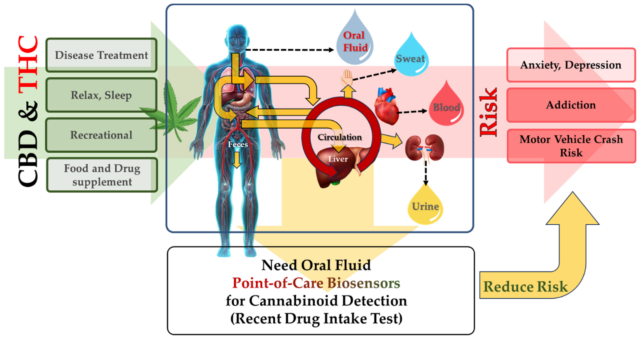The use of cannabis and its derivatives has been increasing across various regions, particularly due to the growing acceptance of medical marijuana. One of the key compounds found in cannabis is tetrahydrocannabinolic acid (THCA), a precursor to THC, the active ingredient responsible for the psychoactive effects of marijuana. While many people are familiar with THC, THCA is gaining attention for its potential presence in urine tests. A common question among individuals who consume cannabis is, “How long does THCA stay in your system urine test?” This article delves into the factors affecting the detectability of THCA in urine and offers insights into the length of time it can remain detectable.
What Is THCA?
THCA (tetrahydrocannabinolic acid) is the non-psychoactive precursor to THC found in cannabis plants. THCA is abundant in raw cannabis but is converted into THC through a process called decarboxylation, which occurs when cannabis is heated—whether through smoking, vaping, or cooking. While THCA itself doesn’t produce the “high” commonly associated with cannabis, its conversion to THC in the body is what contributes to the effects of marijuana use.
How Long Does THCA Stay in Your System for a Urine Test?
When it comes to drug testing, especially for cannabis use, urine tests are one of the most common methods for detecting the presence of substances. Many people wonder, “How long does THCA stay in your system for a urine test?” The answer depends on various factors such as individual metabolism, frequency of use, body fat content, and the sensitivity of the urine test.
1. Metabolism Rate and Frequency of Use
One of the most significant factors influencing how long THCA remains in your urine is your metabolism. People with faster metabolisms may process and eliminate substances more quickly, meaning THCA could be detected for a shorter period. Conversely, individuals with slower metabolisms might retain metabolites for a longer time. Regular cannabis consumers may find that THCA stays in their system for a more extended period because their bodies accumulate more of the compound, making it detectable in urine tests for a longer duration.
2. Body Fat Percentage
THCA, like THC, is a lipophilic compound, meaning it binds to fat cells in the body. This property makes it more difficult for individuals with higher body fat percentages to eliminate THCA as quickly. For people with lower body fat, the substance may be metabolized and excreted more quickly. This means that the length of time THCA remains detectable in urine tests can vary significantly depending on body composition.
3. Hydration and Fluid Intake
Hydration can also play a significant role in how long THCA remains in the system. Drinking more water can dilute urine, potentially lowering the concentration of THCA metabolites. However, this is not a guarantee that the substance will be undetectable, as urine tests are often designed to detect dilution attempts. If an individual drinks excessive amounts of water, the urine sample might appear unusually clear, prompting further testing or scrutiny.
4. Type of Drug Test Used
The sensitivity and type of urine test used can impact how long THCA stays detectable. Standard urine tests typically detect metabolites of THC, such as THCCOOH, rather than THCA itself. However, since THCA is converted into THC when it undergoes decarboxylation, some tests may be able to detect this conversion. The length of time detectable also depends on the cutoff level of the test, which determines how much of the compound must be present to trigger a positive result.
5. Duration and Quantity of Cannabis Use
For occasional cannabis users, THCA may be detectable in the urine for up to 3 days after consumption. However, for frequent or heavy users, the metabolized THCA may remain in the system for much longer. Studies have shown that regular users could have detectable levels of THC metabolites in their urine for several weeks, depending on usage patterns. Chronic users typically take longer to eliminate THCA from their systems due to the accumulation of metabolites over time.
6. Individual Factors
Genetics, age, and overall health also play a role in how long THCA stays in your system. For example, older individuals or those with compromised liver function may find that substances remain in their system longer. Additionally, those with certain genetic variations may metabolize cannabis differently, which can affect how quickly or slowly THCA is processed and excreted.
How Long Does THCA Stay in Urine for Different Types of Users?
The length of time THCA stays detectable in the urine can vary greatly based on individual factors and usage habits. For reference, here are general timelines for different types of users:
- Occasional Users (1-3 times per week): THCA may remain detectable for about 3 to 7 days.
- Moderate Users (several times a week): THCA can be detectable for approximately 7 to 14 days.
- Heavy Users (daily use): THCA may stay in the system for up to 30 days or more.
- Chronic Users (multiple times a day): For those with heavy, long-term use, THCA metabolites could be detectable for several weeks, sometimes exceeding 30 days.
Final Thoughts on THCA and Urine Testing
The detectability of THCA in urine depends on a variety of factors, including the type of drug test used, the frequency of cannabis use, individual metabolism, body fat percentage, and hydration. While occasional users may clear THCA from their system relatively quickly, regular or heavy cannabis consumers can expect it to remain detectable for a longer period. If you’re concerned about how long THCA stays in your system before a urine test, it’s essential to take all these factors into account. However, the only surefire way to pass a urine test is to allow enough time for the body to naturally eliminate the compound, and even then, results can vary from person to person.




